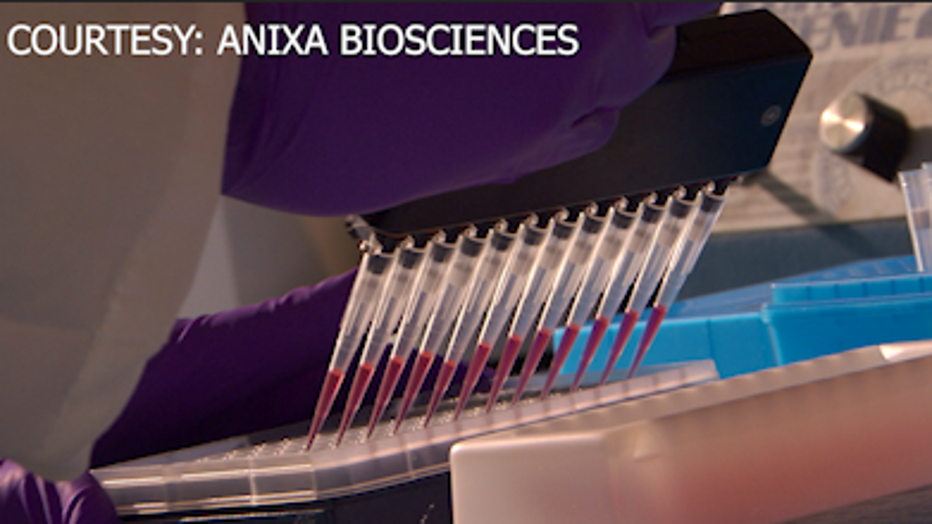'Truly amazing': Woman from Florida becomes first to receive breast cancer vaccine trial

Florida woman is first to receive breast cancer vaccine
A vaccine to protect against breast cancer is on the horizon and a Florida woman just became the first to take the shot.
ORLANDO, Fla. - A vaccine to protect against breast cancer is currently being tested – and a woman from Florida has become person in the Sunshine State to receive it.
Jenni Davis was diagnosed with triple-negative breast cancer in 2018. She went through chemo, a double mastectomy, 26 rounds of radiation, and finally, breast reconstruction.
"With triple-negative, when you’re done with treatment, that’s kind of it. There’s nothing that I take long-term. There’s no pill," explained Davis. "There’s nothing I take to make sure it won’t come back."
That’s what interested her in the vaccine.
"This is going to provide women with peace of mind that they’re not going to have a recurrence and then the broader scale of not worrying about triple-negative ever again is truly amazing."
The vaccine is developed by a company called Anixa BioSciences, and studies are being done at the Cleveland Medical Clinic. This has been in the works for two decades.

New vaccine to prevent breast cancer
In that time, scientists have seen a 0% recurrence rate in their animal studies. Anixa BioSciences CEO Dr. Amit Kumar said the company has never had a single instance of anaphylactic shock in response to the vaccine, either.
"We train their immune systems to destroy these cancer cells and the cancer cells will never become a tumor," said Dr. Kumar. "Ideally, the woman will never even know this is happening in their body."
The study has focused on triple-negative breast cancer, which is its deadliest form. The company thinks it’ll work on other types of breast cancer as well.
"It’s going to take a long time, of course, for everything to progress, but I’m excited," said Davis.
The company that makes the vaccine will be in Orlando this weekend to discuss their findings and the data they’ve gathered from Jenni’s case.
Dr. Kumar says in about five years, the vaccine could be available for people like Jenni, who are looking to prevent the recurrence of breast cancer. From there, the company will work to get it out to women hoping to prevent the disease altogether.

